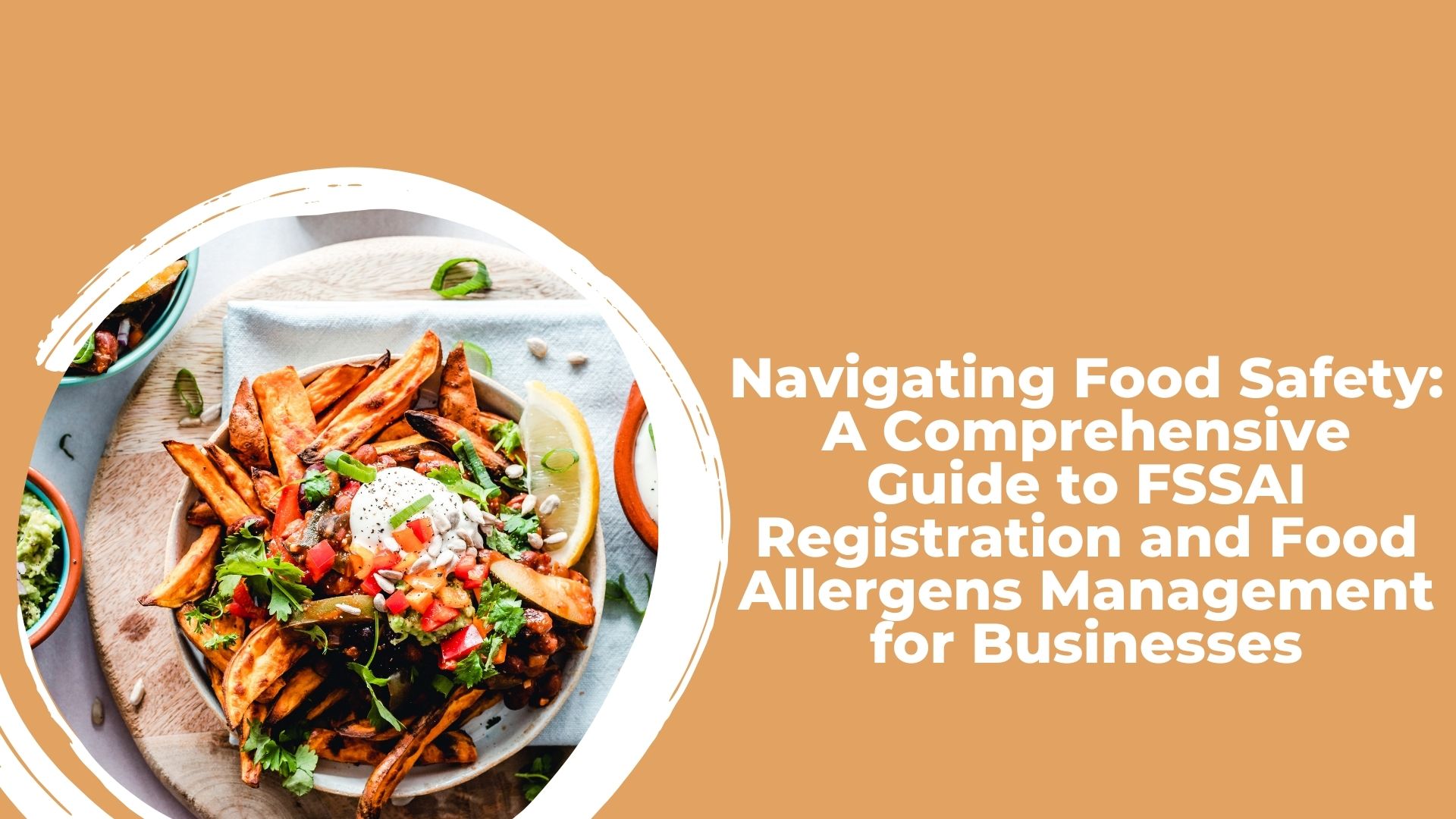In the ever-evolving landscape of the food industry, ensuring the safety and well-being of consumers is paramount. With the rise in food allergies and intolerances, coupled with increasing awareness among consumers about what goes into their food, it has become imperative for businesses to adhere to stringent regulations and guidelines. One such regulatory body at the forefront is the Food Safety and Standards Authority of India (FSSAI). In this comprehensive guide, we delve into the significance of FSSAI registration and explore strategies for managing food allergens effectively.
Understanding FSSAI Registration
The FSSAI is an autonomous body established under the Ministry of Health & Family Welfare, Government of India. Its primary objective is to regulate and oversee the safety and standards of food products across the country. FSSAI registration is mandatory for all food businesses operating in India, including manufacturers, distributors, retailers, and even food importers. The registration process involves obtaining a unique 14-digit license or registration number, which must be displayed on all food packages.
Importance of FSSAI Registration:
Legal Compliance:
FSSAI registration ensures that businesses comply with the Food Safety and Standards Act, 2006, and other relevant regulations. Non-compliance can lead to hefty fines and even closure of the business.
Consumer Trust:
Displaying the FSSAI license instills confidence in consumers regarding the safety and quality of the products. It demonstrates the business’s commitment to maintaining high standards of food safety.
Market Access:
Many retail chains and supermarkets require suppliers to have a valid FSSAI license before stocking their products. Hence, FSSAI registration opens doors to broader market opportunities.
Managing Food Allergens: Key Considerations
Food allergies occur when the immune system reacts adversely to certain proteins present in food. Common allergens include milk, eggs, peanuts, tree nuts, wheat, soy, fish, and shellfish. For individuals with food allergies, even trace amounts of allergens can trigger severe reactions, ranging from mild itching to life-threatening anaphylaxis. Here are some guidelines for businesses to manage food allergens effectively:
Ingredient Labeling:
-
Clear and Accurate Labels: Ensure that all food labels accurately list the ingredients, including any allergens present in the product. Use clear and easily understandable language to facilitate consumer comprehension.
-
Highlight Allergens: Highlight allergens by using bold fonts, different colors, or allergen icons on the packaging. This helps allergic consumers identify potential risks quickly.
Cross-Contamination Prevention:
-
Separate Production Lines: Implement separate production lines or dedicated equipment for allergen-free products to prevent cross-contamination.
-
Strict Cleaning Protocols: Establish stringent cleaning protocols to eliminate traces of allergens from shared equipment or surfaces.
Staff Training:
-
Education and Training: Train all staff members, including kitchen staff, servers, and managers, about food allergies, their symptoms, and the importance of preventing cross-contact.
-
Emergency Response: Equip staff with knowledge on how to respond promptly and effectively to allergic reactions, including administering first aid and contacting medical professionals.
Collaboration with Suppliers:
-
Transparent Communication: Maintain open communication with ingredient suppliers to ensure they provide accurate information about allergen content and any potential risks of cross-contamination.
-
Supplier Audits: Conduct regular audits and inspections of supplier facilities to verify compliance with allergen management protocols.
Note: You Can Apply for FSSAI Certificate Renewal Through FSSAI Portal
Conclusion
In conclusion, FSSAI registration and effective management of food allergens are essential pillars of ensuring food safety and consumer trust in the food industry. By adhering to FSSAI regulations and implementing robust allergen management practices, businesses can not only comply with legal requirements but also safeguard the health and well-being of their customers. Embracing transparency, education, and collaboration will ultimately pave the way for a safer and more inclusive food environment for all.





